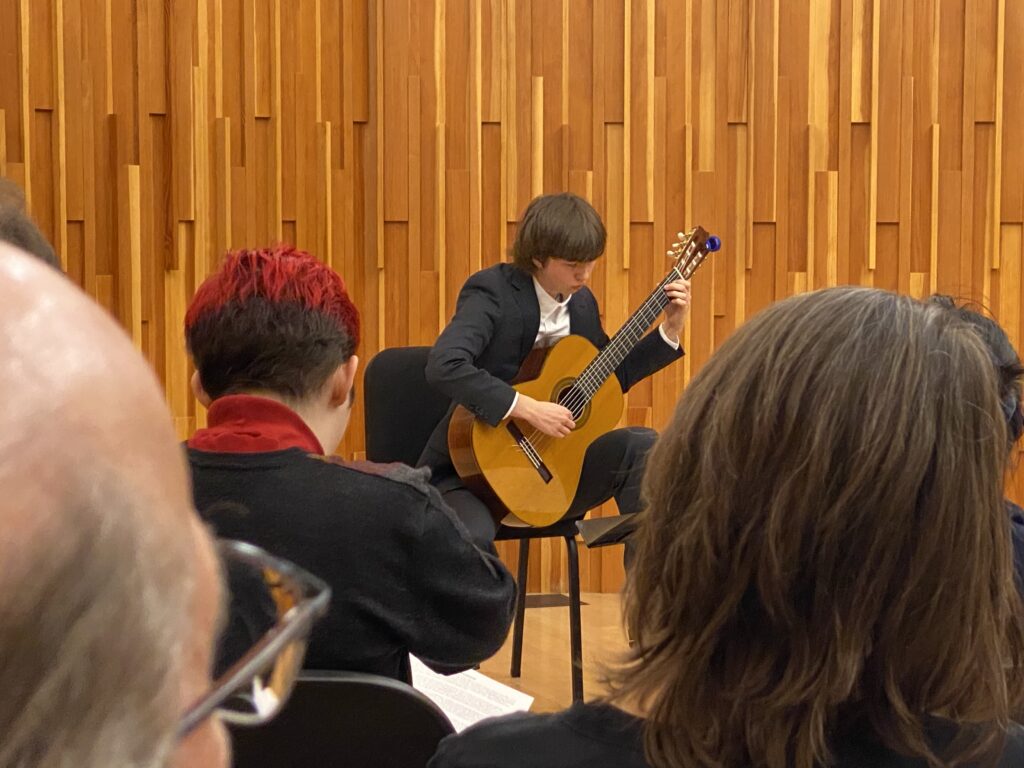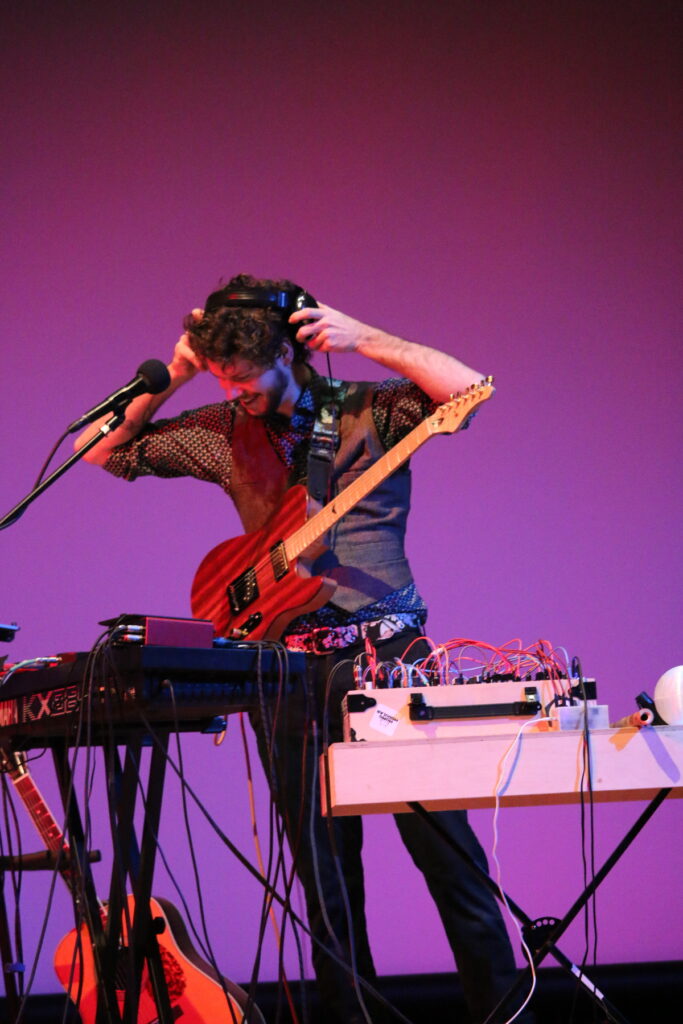

With the end of the academic year quickly approaching, music students are preparing to present the culmination of their practice. Many music performance and composition classes at Lewis & Clark include a required recital component. In addition to working to improve technique under instruction all semester, through recitals students learn to showcase their skills in performance.
Recitals also provide an opportunity for music students of all instruments, disciplines and skill levels to engage with each other’s work. Vocal performance major True Duerden spoke about the community-building benefit of recitals.
“It helps introduce people to what’s possible in the world of music,” Duerden said. “It’s really exciting to see what everybody’s doing on campus and it helps build a community especially within the music department because you go to each other’s recitals and see what’s going on.”
Duerden’s senior degree recital is tomorrow. The senior degree recital is required for those graduating with a degree in music and is intended to be a presentation of the student’s work and development in their area of concentration throughout their four years of study. Students compared the degree recital to a thesis presentation or paper that other majors complete to showcase the knowledge and skills they have gained.
“It’s a way to see the culmination of all your work at Lewis & Clark,” Deurden said. “You gather up all the music that you’ve worked on throughout your time at Lewis & Clark. Some of it you learn during your senior year and then some of it is supposed to be from previous years to show your growth. Whereas maybe an English major would have to write a long thesis paper, we get to have a senior recital, and in our recital program notes we show off the knowledge we’ve learned about the music we’re doing, and people can just hear what you’ve been working on. It’s really rewarding.”
Both Duerden and Seamus Brindley ’23, who recently performed his degree recital in classical piano, said that while it is impossible to avoid the nerves, performing gets easier with experience. The best thing to do, said Brindley, is to not fight the nervousness and to accept that the performance may not be perfect.
“If you’re putting the work into it everyday with practicing, that’s all you can do,” Brindley said. “With presenting music or art, you want it to be a certain way because you’re trying to express something, so it is like ‘Ugh I don’t want to make a mistake.’ But the worst that can happen when you’re playing is really that you make a mistake, and that’s a human thing to do. Especially here, when people are going to recitals, they’re just getting together to appreciate art and support their friends and share music together. If and when you make a mistake, it’s not an earth-shattering thing, and it can just become a part of the music and the moment.”
There are many recitals coming up this month, where you can support your peers’ work while enjoying diverse styles of music for free.
Subscribe to the Mossy Log Newsletter
Stay up to date with the goings-on at Lewis & Clark! Get the top stories or your favorite section delivered to your inbox whenever we release a new issue.

Leave a Reply